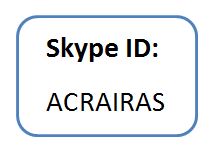Tax return filing deadline for businesses and individuals
Running a business in Singapore either as a foreigner or as local requires that you know the tax return filing deadline, which, thankfully, is not too hard to do if you have the assistance of a small business accounting firm, such as J Accounting Pte Ltd. The body mandated by law to collect revenue in Singapore is the Inland Revenue Authority of Singapore (IRAS).
Individuals are also required to file their tax returns. Whether you are a corporate entity or an individual, you will have to file returns and knowing the dates in which to do that makes you compliant.
Individuals are required to file their returns between March 1 and 18 April every year if they are e-filing online. However, for individuals who are doing paper filing, they have time between the 1st of March and the 15th of April annually. Remember, even if you are a foreigner, these deadlines apply to you as well. Extensions may be granted by IRAS on a case by case basis.
Tax return filing for employees
Employees need not fill up the portions of employment income in their personal tax returns because it is assumed their employers will do that for them if the company is under auto-inclusion scheme, i.e. AIS. However, if you have other income sources apart from employment such as rental income or royalties etc, you will be required to self-declare and pay tax for those incomes. Most individuals will get notification (e.g. through SMS text message) from the IRAS reminding you to file your tax returns. If you have not had any additional income, you must still file your returns, unless you are exempted from filing and no-filing is required.
GST tax return filing deadline
The filing deadline for GST (goods and services tax), where every GST registered company is mandated to file GST return and pay four times a year if they opted for quarterly GST filing. The deadline is 30 April if for example the accounting period between January to March. The deadline for the accounting period between April to June is 31 July, July to September is 31 October and October to December is 31 January.
ECI tax return filing deadline
ECI means the estimated chargeable income of a company for a given year after the subtraction of expenses tax allowances as a general guide. Usually, if you own a company in Singapore, you will receive a notification reminder in the last month of your financial year to e-file your ECI. However, just know when your financial year ends, you have to e-file the ECI returns within three months after the end of your fiscal year if you are not exempted from filing.
You have to determine when your company’s financial year end is. It can be anytime e.g. 31 March, 31 July, and 31 December. If your financial year starts in January, then it will usually end on 31 December to maximize tax benefits.
Corporate income tax return filing deadline
This simply means that the IRAS is going to tax company income for the preceding year. For example, the taxable income for year ending 2017 will be filed and paid in 2018, sometimes called YA 2018. Paper filing is due by 30 November of the following year, while e-filing is due by 15 December of the following year.
AIS tax return filing deadline
If you are an employer employing people in your company operating in Singapore, then you may need to file their tax returns under the Auto Inclusion Scheme (AIS) if you meet the criteria. IRAS recommends e-filing more than paper filing. The deadline for e-filing the AIS returns is by the 1st of March every year.
Tax return filing deadline extensions
Such deadline extensions can be granted in all cases, but certain prerequisites have to be met. However, reasons like new accounting employees who do not know how to file. Lack of computer, lack of enough manpower, staff being on maternity or paternity leave, staff being out of the country and so on will not be accepted. Extension granted is on a case-by-case basis. Suggest that you perform your tax returns filing early before the deadline to prevent last minute rush. Sometimes, it is best that you engage a professional firm (for example J Accounting Services) to assist you with this, because you may not know whether you are filing your tax correctly to IRAS. Even if they are correct, it may not have been well planned and tax optimized, and therefore you are paying more tax to IRAS.




